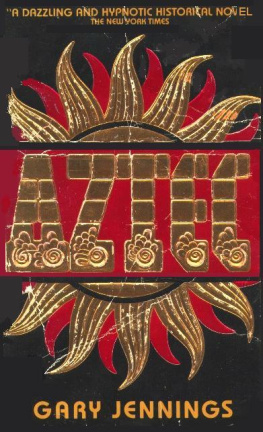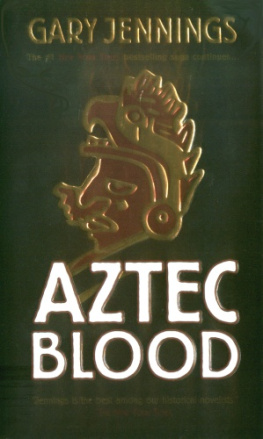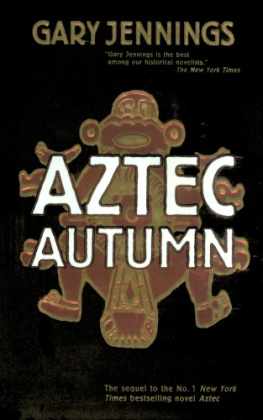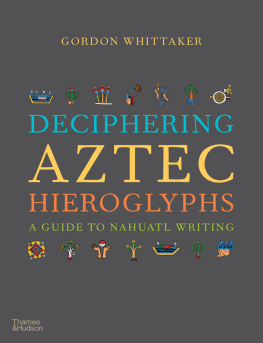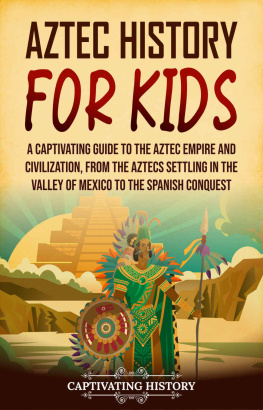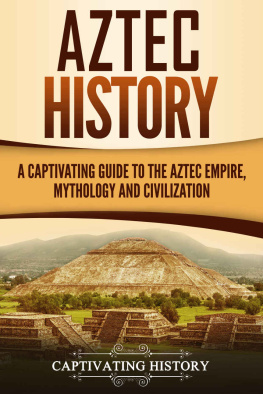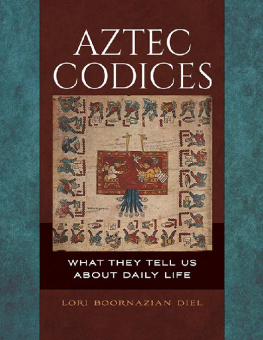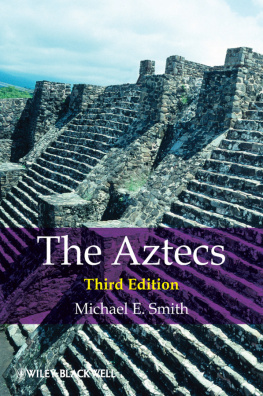You tell me then that I must perish
like the flowers that I cherish.
Nothing remaining of my name,
nothing remembered of my fame?
But the gardens I planted still are young
the songs I sang will still be sung!
HUEXOTZIN, Prince of Texcco, ca. 1484
COURT OF CASTILE VALLADOLID
To His Majesty's legate and chaplain, Fray Don Juan de Zumrraga, lately appointed Bishop of the See of Mexco in New Spain, a charge upon him:
That we may be better acquainted with our colony of New Spain, of its peculiarities, its riches, the people who possessed it, and the beliefs, rites, and ceremonies which they heretofore held, we wish to be informed of all matters appertaining to the Indians during their existence in that land before the coming of our liberating forces, ambassadors, evangels, and colonizers.
Therefore, we order that you shall inform yourself from ancient Indians (having first administered to them the oath, to assure veracity) as to their country's history, their governments, their traditions, their customs, etc. In addition to the information that you secure from witnesses, you will cause to be brought before you any writings, tablets, or other records of that foregone time which may substantiate what is said, and you will cause your missionary friars to search and ask for such records among the Indians.
Because this is a very weighty matter and very necessary for the discharge of His Majesty's conscience, we command you to attend to the conduct of the said inquiry with all possible promptitude, care, and diligence, and that your account be set forth in much detail.
(ecce signum) CAROLUS R I
Rex et Imperator
Hispaniae Carolus Primus
Sacri Romani Imperi Carolus Quintus
I H S
S.C.C.M.
Sanctified, Caesarean, Catholic Majesty, the Emperor Don Carlos, Our Lord King:
May the grace, peace, and loving kindness of Our Lord Jesus Christ be with Your Majesty Don Carlos, by divine mercy eternally august Emperor; and with your esteemed Queen Mother Doa Juana, together with Your Majesty by the grace of God rulers of Castile, of Leon, of Aragon, of the Two Sicilies, of Jerusalem, of Navarre, of Granada, of Toledo, of Valencia, of Galicia, of Mallorca, of Seville, of Sardinia, of Cordova, of Corcega, of Murcia, of Jaen, of the Caribbees, of Algeciras, of Gibraltar, of the Canary Isles, of the Indies, of the islands and lands of the Ocean Sea; Counts of Flanders and of the Tyrol, etc.
Very Fortunate and Most Excellent Prince: from this city of Tenochttlan-Mexco, capital of your dominion of New Spain, this twelfth day after the Assumption, in the Year of Our Lord one thousand five hundred twenty and nine, greeting.
It was but eighteen months ago, Your Majesty, when we, though the least of your vassal subjects, heeded Your Majesty's command that we assume this trifold post as the first appointed Bishop of Mexco, Protector of the Indians, and Apostolic Inquisitor, all embodied in our one and own poor person. It has been but nine months since our arrival in this New World, and there was much arduous work awaiting us.
In accordance with the mandate of this appointment, we have striven zealously "to instruct the Indians in their duty to hold and worship One True God, Who is in Heaven, by Whom all creatures live and are maintained"and likewise "to acquaint the Indians of that Most Invincible and Catholic Majesty, the Emperor Don Carlos, whom divine Providence has willed that the whole world should obey and serve."
Inculcating these lessons, Sire, has been far from easy or expeditious. There is a saying among our fellow Spaniards here, extant well before our arrival: "The Indians cannot hear except through their buttocks." But we try to bear in mind that these miserable and spiritually impoverished Indiansor Aztecs, as most Spaniards now refer to this particular tribe or nation of them hereaboutsare inferior to all the rest of mankind, and therefore, in their insignificance, deserve our tolerant indulgence.
Besides attending to the Indians' instructionthat there is only One God in Heaven, and the Emperor on earth, who's subjects they have all become and whom they must serveand besides dealing with many other ecclesiastical and civil matters, we have attempted to comply with Your Majesty's personal adjuration to us: that we early prepare an account of the conditions of this terra paena-incognita, the manners and ways of life of its inhabitants, the customs, etc. formerly obtaining in this benighted land.
Your Most Lofty Majesty's royal cdula specifies that we, in providing the chronicle, shall inform ourself "from ancient" Indians." This has necessitated something of a search, inasmuch as the total destruction of this city by Captain-General Hernn Corts left us very few ancient Indians from whom thy seek a credible oral history. Even the workers currently re-building the city consist mainly of women, children, the dolts and dotards who were unfit to fight in the siege, brute peasants conscripted from the outlying lands. Oafs, all of them.
Nevertheless, we were able to ferret out one ancient Indian (of some sixty and three years of age) capable of providing the desired account. This Mexcatlhe repudiates both the appellations Aztec and Indianis of a high grade of intelligence (for his race), is articulate, is possessed of what education was heretofore afforded in these parts, and has been in his time a scrivener of what passes for writing among these people.
In his lifetime he has had numerous occupations besides that of scribe: as warrior, as courtier, as traveling merchant, even as a sort of emissary from the late rulers of this place to the first arriving Castilian liberators, and those envoy duties have given him a passable grasp of our language. Though his Castilian falters seldom, we of course desire precision in all details. So we have provided an interpreter, a young lad who has considerable proficiency in Nhuatl (which is what these Aztecs call their guttural language of lengthy and unlovely words). In the interrogation room, we have also seated four of our own scribes. These friars are adept in that art of swift writing by character, known as Tironian notes, which is employed at Rome for making memoranda of the Holy Father's every utterance, and even for recording the entire proceedings of many-peopled conferences.
We bade the Aztec sit down and tell us his life story. The four friars, busily flicking away at their Tironian squiggles, did not then or since lose a single word that drops from the Indian's lips. Drops? Better say: words that cascade in torrents alternately loathly and corrosive. You will soon see what we mean, Sire. From the very first opening of his mouth, the Aztec evinces disrespect for our person, our cloth, and our office as our Revered Majesty's personally chosen missionary, which disrespect is an implicit insult to our sovereign himself.
The first pages of the Indian's narrative follow immediately after this explanatory introduction. Sealed for your eyes only, Sire, this package of manuscript will depart Tezutlan de la Vera Cruz the day after tomorrow in the keeping of Captain Sanchez Santovena, master of the caravel Gloria.
Your Caesarean Majesty's wisdom, sagacity, and discrimination being universally known, we realize that we risk your imperial displeasure in presuming to preface the enclosed pages with a caveat, but, in our episcopal and apostolic capacity, we feel that obligatory upon us. We are sincerely desirous of Complying with Your Majesty's cdula, of sending a true report of all there is worth knowing of this land. But others besides ourself will tell Your Majesty that the Indians are paltry beings, in whom one will scarcely find even vestiges of humanity; who do not even have a comprehensible written language; who have never had any written laws, but only barbaric customs and traditions; who have been or still are addicted to all kinds of intemperance, paganism, ferocity, and carnal lusts; who have but lately tortured and slain their own fellow beings for the sake of their misbegotten "religion."

